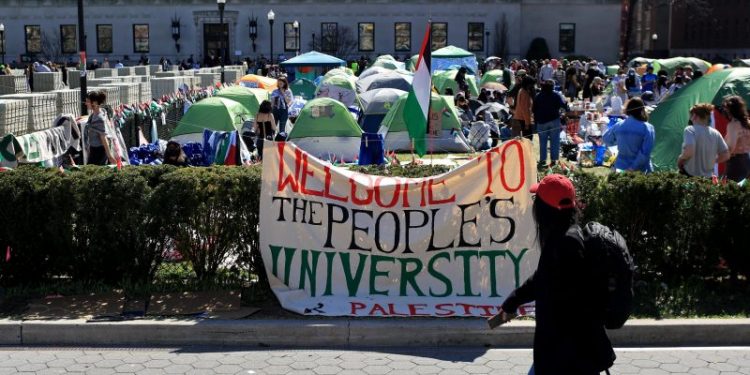Amidst the growing frequency of protests on college campuses nationwide, President Joe Biden finds himself in a delicate balancing act. As demonstrations escalate in intensity and reach, the Biden administration is under increasing pressure to address students’ demands for change while also upholding the principles of free speech and academic freedom.
One of the most pressing issues at hand is the demand for increased diversity, equity, and inclusion in higher education institutions. Students are calling for more diverse faculty and staff, as well as increased representation and support for marginalized groups on campus. The Biden administration has signaled its support for these initiatives, recognizing the importance of creating a welcoming and inclusive environment for all students.
Another key issue driving campus protests is the rising cost of education and student loan debt. Many students are struggling to afford tuition and living expenses, leading to calls for greater financial assistance and debt relief. President Biden has proposed various measures to address these concerns, including increasing Pell Grants, expanding loan forgiveness programs, and making community college tuition-free for two years.
In navigating these complex issues, President Biden must strike a balance between responding to students’ demands and respecting the autonomy of colleges and universities. While the federal government can provide guidance and support, it is ultimately up to individual institutions to implement changes that reflect the needs and values of their student body.
Furthermore, the Biden administration must also contend with the broader societal divisions that fuel campus protests. Issues such as systemic racism, economic inequality, and political polarization are not limited to college campuses, and the administration must grapple with these challenges on a national scale.
As President Biden seeks to strike a careful balance amidst the spread of college protests, it is clear that a thoughtful and nuanced approach is necessary. By engaging with students, faculty, administrators, and other stakeholders, the administration can work towards meaningful change that promotes diversity, equity, and inclusion in higher education while preserving the principles of free speech and academic freedom.

















